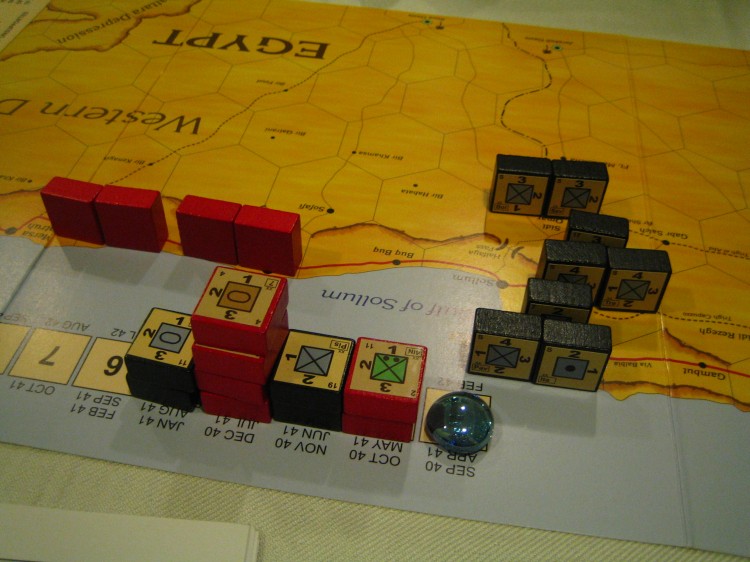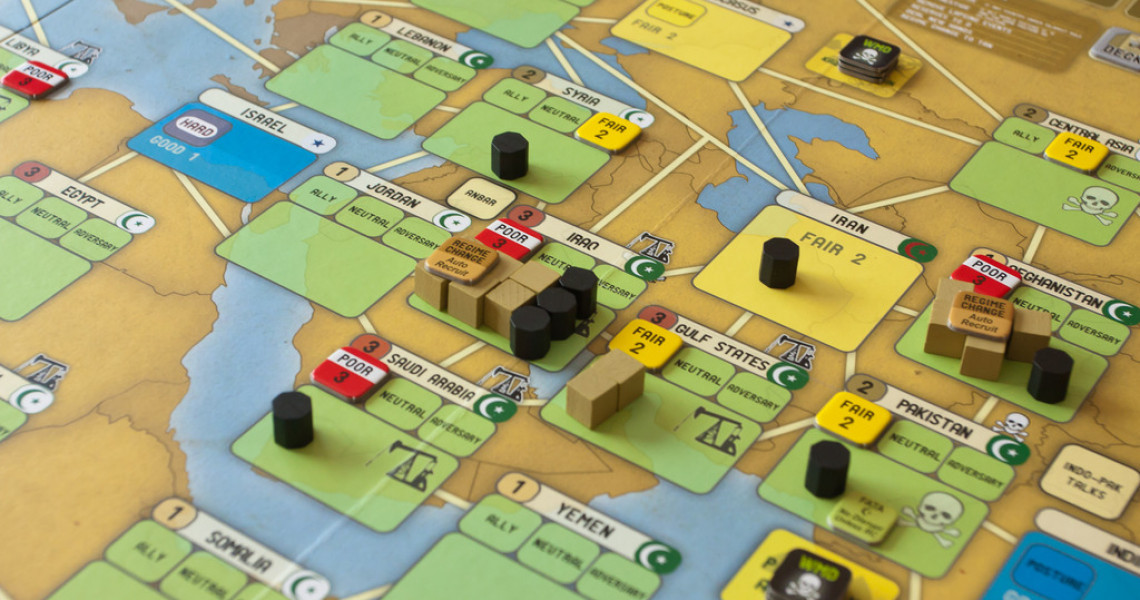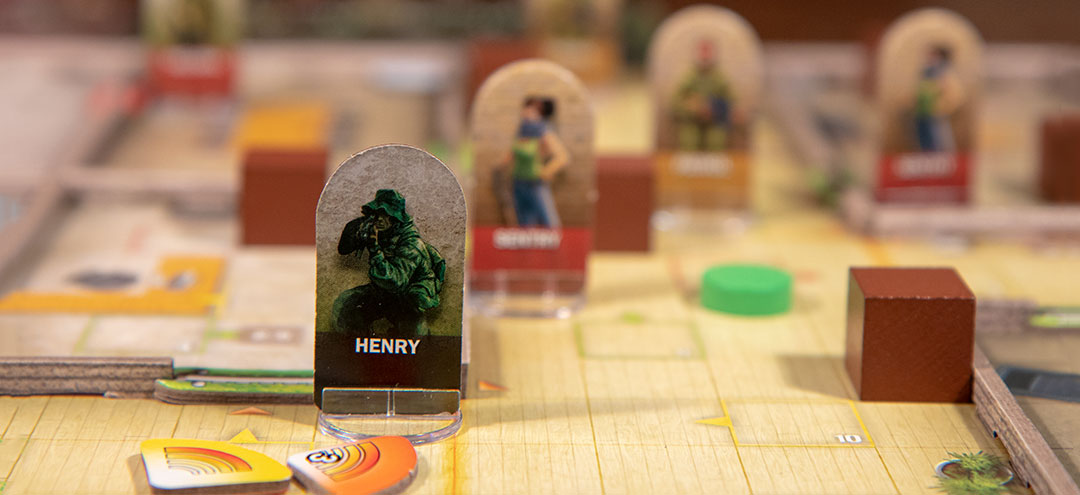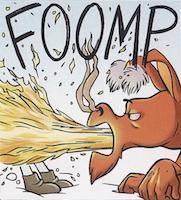When game identity and topic becomes a problem, how do you deal with it?
We've been having many conversations about identity, acceptance, and tolerance around this site in the last few weeks; some it has been mostly game-oriented and some of it has been on a somewhat higher level. But something occurred to me today that has stuck out to me a few times in recent years, but that I've typically either brushed away or, in some cases, avoided by simply not sitting down at the table. That thing is the question of identity and action within the little spheres that make up the worlds of these games. Is the distaste for an historical scenario or even a fictional one enough to deter you not just from playing that particular faction but from playing a game at all?
Case in point: I love Rommel in the Desert, not just because I really enjoy Columbia's block wargames, but also because I have a great deal of respect for Rommel's vision and foresight when it came to mechanized warfare and the tactics that embodied it. In military science terms, he often did more with less and continually confused and evaded his enemies to maintain a front that he likely should have lost relatively quickly. Similarly, I really like playing Shenandoah, another Columbia block game, because it often gives me a chance to play as Stonewall Jackson; another forward thinker on the battlefield and one whose accomplishments there pushed him into the realm of legend even while he was still alive.

However, there's no debating that in both cases, the regimes that they fought so brilliantly for were despicable; one promoting the ownership of human beings "not like us" and the other promoting extermination of them. It doesn't really matter what Rommel's views on Jews or Jackson's views on slavery were, either. They fought to enable the ability of others to commit crimes against humanity. So, when it comes to playing their armies in these games... what do you do? Is it easy for you to detach yourself from the underlying motivations of the faction that you're wielding in the game? Do you approach it with the perfectly valid perspective that it's "just a game"? Or do you hesitate?
I confess to never having really had a problem with historical wargames. Most regimes are pretty awful from one perspective or another. I could cringe at the thought of playing either the Americans or the Soviets in Twilight Struggle, since I know in fine detail about the proliferation of crimes committed by both nations during the Cold War (and beyond.) But I'm able to compartmentalize that in the same way I do playing the Germans in Panzerblitz or, for that matter, the Uthuk Y'llan in Runewars. They're not "the good guys"; not even close. But that's OK, because it's just a game and I'm not promoting demon-worship or Nazism by playing as them for a few hours. But I've noticed that some things have gotten more difficult as time has gone on.
I was never able to get into another of GMT's famous card-driven games (CDGs): Labyrinth. It's a game about the American "War on Terror." From my one play, I knew that the perspective on this situation was so out of touch with the reality and felt so distorted in the execution of its vision that I simply had no interest in playing it again. I felt like it was helping to spread a message that was hindering public perception of a problem, rather than helping people to understand. Is that because it's a game about a situation that persists to this very day, as opposed (kinda...) to the American Civil War? History often has answers for who the "good guys" and "bad guys" are (taking into account the aphorism that history is written by the winners.) It's certainly easier to feel a step removed from situations that occurred 80 or 800 years ago than it is those that are still extant in the news and modern culture. But I noticed that one of the interesting things was that I wasn't so concerned with playing a particular side in Labyrinth, so much as I was simply playing. As with most GMT releases, the mechanics were fine (if a little convoluted), but I just didn't feel like immersing myself in that slanted of an outlook on a nebulous scenario.

In contrast, TWBG just published a news item about an upcoming release by Ravensburger: Jaws: The Board Game. Unlike most of the stuff from Columbia and GMT, this isn't an historical simulation. Like Runewars, this is a fictional scenario, albeit a fictional scenario set in our own real world. My initial reaction was one of consternation; in part because I don't have faith that the game can replicate what makes the film great, but also because I find myself utterly disinterested in playing a game where the object is for one group of players to eliminate a member of a species that is currently threatened by people trying to do the same thing in the real world. I don't want to play this game because I don't want to promote the ideas that sharks are bad or that the solution to them being bad is to kill them. Of course, as noted in the film, this is no ordinary shark. The whole plot is based around it being unusually large, powerful, and aggressive. So, again, it's fictional... but it's real enough to me to not want to participate.
From the same perspective, we had a game designed and developed by a couple regulars here at TWBG: SEAL Team Flix. The players are a SEAL team, protecting the public from the eco-terrorist organization, Gaia's Hope. Right away, that stuck out to me. It's not just because the enemies are "terrorists", with all of the viewpoint-laden trappings that that label carries ("One man's terrorist is another man's freedom fighter.", etc.), similar to Labyrinth. But it's also that they're ECO-terrorists; as in, people who are nominally fighting on behalf of the environment. These are, uh, not the people that I want to be gunning down as a highly-trained military operative. I mean, I'm not sure that I want that job in the first place, but I especially don't want to be doing it to people that may just be a really hardcore sect of Greenpeace or The Sierra Club.
This is an obviously fictional scenario... or is it? Is it really that hard to imagine, as temperatures continue to rise and forests continue to diminish that, at some point, the guns and bombs will come out to try to take a stand? I'm not eager to see that and I know that the designers of SEAL Team Flix weren't making any kind of political statement. In creating an adversary for the SEALS, they were conscious of trying to make something that seemed too outlandish to be real, but also wasn't a pack of bug-eyed aliens from Neptune. (No offense, Neptunians.) And mostly they were just trying to make a good game, as were the designers of Rommel in the Desert, Shenandoah, Jaws, and every other game I've mentioned here. But once the box is bought by someone else, there's no telling what kind of messages will be drawn from it. Most people don't get their education from board games... except when they're historical board games and people can learn quite a bit from both gameplay and the often-detailed histories that companies like Columbia provide with their rulebooks. Do I want to be playing a game with the most murderous tree huggers ever known? Do I want to play a game where Nazis win all the time? (I'm pretty good with Rommel, yo.)

This is a possible quandary of identity, too. As noted before, I've been a peace activist in the past, but I play a lot of wargames; my considerable library is loaded with military histories; I've cited my respect for forward thinkers in tactics like Stonewall Jackson. I'm clearly not wedded to a principle when it comes to playing games. A lof ot people don't really like wargames because they're either so averse to the concept of combat or they don't like directly "killing" their opponent's pieces, if not both. But in the same way that no one is promoting the idea of killing sharks, no one is actually dying at the game table. It's just a game. But these are also games that resonate with ideas that I'd rather not be promoting. Am I promoting those ideas by simply pulling the game off the shelf and suggesting that we play? Not necessarily and no more than I would be promoting the ideas of shooting heroin, rape, and hiding corpses if I suggested we sit down and watch Pulp Fiction. So, clearly, I can compartmentalize some things but am not so successful with others. Is that similar to liking some kinds of games and not others? Possibly. But it also feels like something more, since I tend to think of it as an external conflict ("I don't want to spread this idea or make it comfortable"), as opposed to an internal one ("I don't enjoy/am not good at dexterity games.", which is another reason for not getting into SEAL Team Flix.)
The difference between this conflict and one that comes largely from taste ("I don't like action movies.") is that board games are an inherently social activity. They're something that you do with other people and experience with them in ways beyond sitting in a dark room and drawing whatever internal message you derive from a film. These games of ours are a group message; a multi-person determinant in how we interact and what we choose to do. It's an open question as to whether that means more than I think it does.
 Games
Games How to resolve AdBlock issue?
How to resolve AdBlock issue? 






























